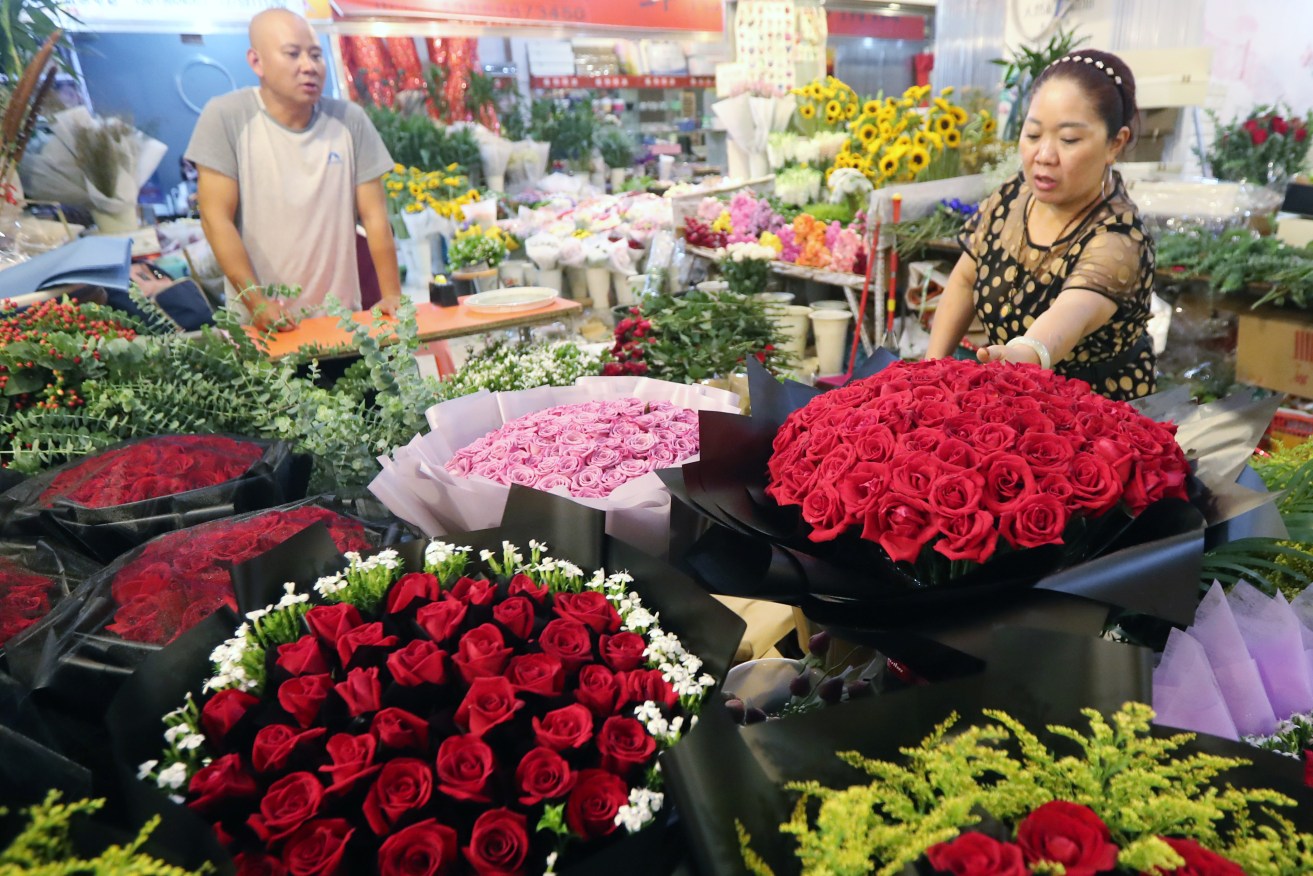Beyond multiculturalism: how we can share understanding and wealth
Sharing in each other’s cultures – rather than just tolerating difference – should be Australia’s great competitive advantage in a global world. If only we would embrace it, writes Andrew Hunter.


A flower market in China's Yunnan province, which has the perfect climate for growing roses. Photo: Yang zheng - Imaginechina/Sipa USA
In a small village outside of Kunming, close to the border between China and Myanmar, John Khalil grows roses. The Lynch Group supplies Coles and Woolies with roses cultivated in a small village in Yunnan Province, which has the ideal climate for rose-growing. Khalil migrated to Australia from Lebanon many years ago, and developed a global business selling roses to the world.
Lynch Group is an Australian company that embraces the global economy. A brief survey of their greenhouses in Yunnan Province makes this perfectly clear. Local villagers work greenhouses in which the materials used to shade the light were fabricated in Japan, the machines used to fertilise the soil in the Netherlands, the plastic piping used to irrigate the water from Israel.
Khalil is the inspiration for Lynch Group’s success, and for its embrace of the global economy. A beautiful person and true gentleman, he has the gift of connecting with people. Khalil clearly has great commercial acumen and people skills, but his most profound gift is his intercultural mind.
Another successful Australian businessman, Charlie Shahin, spoke at the chairman’s event prior to Port Adelaide Football Club’s match against Western Bulldogs this year. The room was captivated by Shahin, who was born in Palestine then migrated to Australia. As he held the room in the palm of his hand, Shahin attributed his incredible success to the opportunities available to those lucky enough to make Australia their home.
Shahin, whose family-business operates service stations and convenience stores under the OTR brand, supports Port Adelaide’s Intercultural Program. The program, managed by former PAFC player Alipate Carlile, is designed to promote inclusion and build social cohesion. One participant in the Intercultural Cup, Hajar, remarked she “has never felt more accepted than when she is with Port Adelaide Football Club.” There is a beauty to what sport can achieve.
It was announced yesterday that Port Adelaide will expand the Power Intercultural Program in 2020 thanks to a $569,100 injection by the Commonwealth Government. In a country such as ours, with incredible cultural and linguistic diversity, initiatives that contribute to cohesion and understanding are incredibly important.
We need to work towards an intercultural society.
J.M.G. le Clézio, Nobel Prize Laureate for Literature in 2008, described the intercultural as “an ideal … that should enable people from different backgrounds to meet and exchange their ideas and wealth”.
An intercultural understanding, so critical to success in a global economy, should be a significant comparative advantage for Australia, if only we chose to embrace it.
But Australia has to realise this potential. When Port Adelaide produced a branded hijab to coincide with the intercultural program, some social media commentary associated with this announcement suggests there is a distance to be travelled. Many simply do not wish to develop a better understanding of other cultures – particularly cultures informed to some degree by the Islamic faith.
A policy of multiculturalism encouraged Australians of diverse cultural backgrounds to express their differences. A policy of interculturalism, on the other hand, would encourage us to share these differences; to develop greater understanding rather than mere acceptance. An intercultural approach would enhance not only our society but also our effectiveness to operate in a global economy.
Le Clézio once remarked that he was motivated by “the idea – very intercultural – that all people have something to bring to humanity”. People like Khalil and Shahin have contributed enormously to humanity – and Australia has benefitted most. The more we adopt an intercultural approach, the more we share our wealth, knowledge and ideas, and the greater the chance we will prosper and thrive together.
Meanwhile, John Khalil will continue to grow roses.
Andrew Hunter is Port Adelaide Football Club’s general manager, China engagement, and an occasional contributor to InDaily on international affairs.




